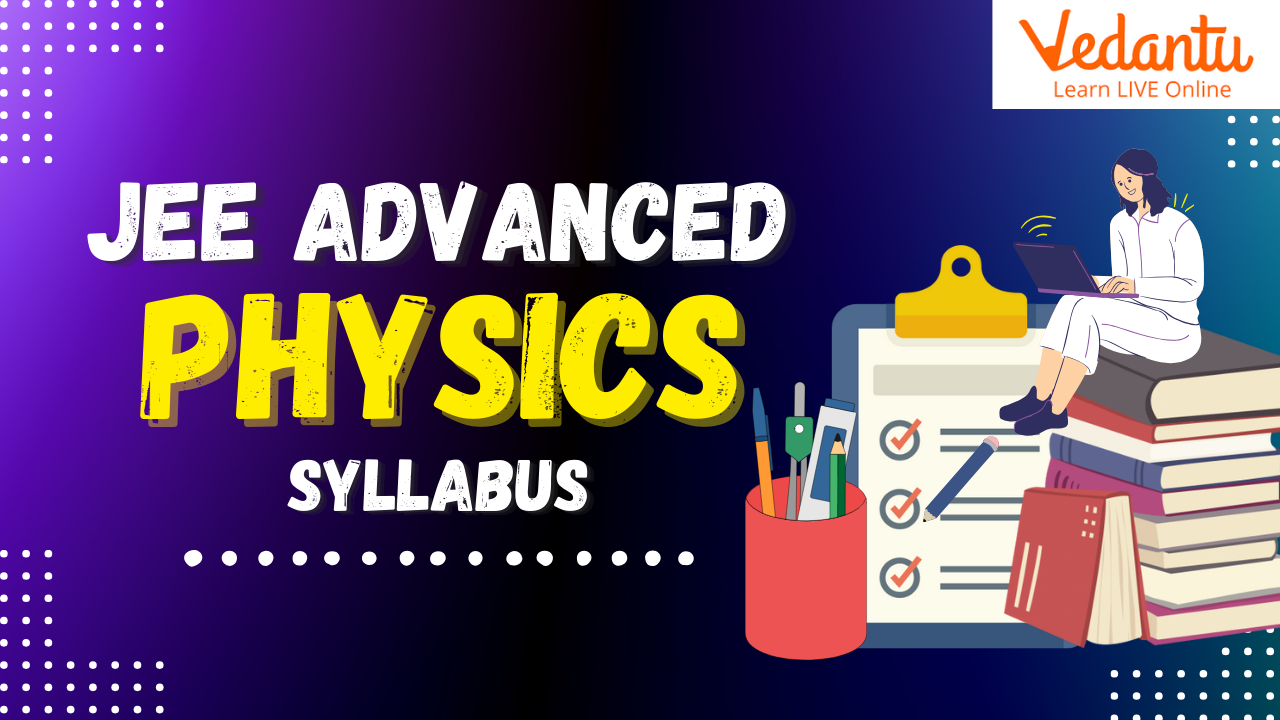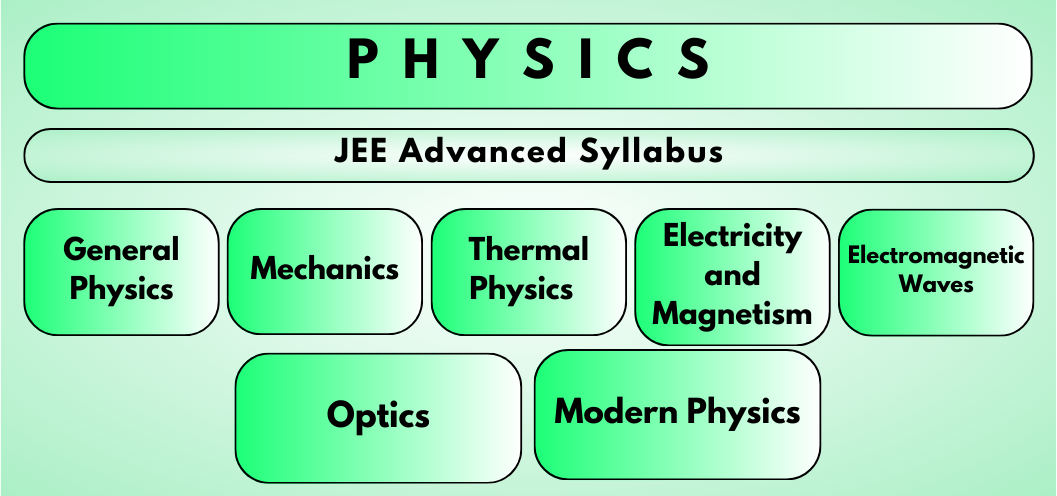JEE Advanced Updated Physics Syllabus 2024: Download the Topic-Wise PDF with Weightage


















FAQs on JEE Advanced Physics Syllabus 2024 (Released)
1. Is it necessary to study the entire syllabus for JEE Advanced?
Yes, it is necessary to study the entire syllabus for JEE Advanced to have a comprehensive understanding of all the concepts that may be tested in the exam.
2. How to know if I am prepared for the JEE Advanced exam?
To know if you are prepared for the JEE Advanced exam, you can take mock tests, practice solving previous year question papers, and get your doubts clarified by teachers or online resources.
3. I Appeared in the Class XII Examination for the First Time in 2023. Am I Eligible for JEE Advanced 2024?
Yes, candidates who appeared in the Class XII Examination for the First Time in 2023 are eligible for JEE Advanced 2024.
4. Is HC Verma Enough for the JEE Advanced 2024?
HC Verma is a good book for building conceptual understanding in Physics, but it may not be sufficient for JEE Advanced preparation as it lacks a variety of problem-solving practice.
5. Is NCERT Sufficient for the JEE Advanced 2024?
NCERT textbooks are a good starting point for JEE Advanced preparation, but they may not be sufficient for in-depth understanding of all the concepts. Additional reference books may be needed.
6. What is the weightage for each topic in the JEE Advanced Physics Syllabus 2024?
The weightage for each topic in the JEE Advanced Physics Syllabus 2024 is not officially released by the Joint Entrance Examination (JEE) Advanced. However, based on past years' question papers, it is estimated that the weightage for each topic is as follows:
Mechanics: 35%
Electrostatics: 15%
Magnetism: 10%
Optics: 15%
Modern Physics: 10%
Thermodynamics: 10%
Waves and Oscillations: 5%
Units and Dimensions: 5%





